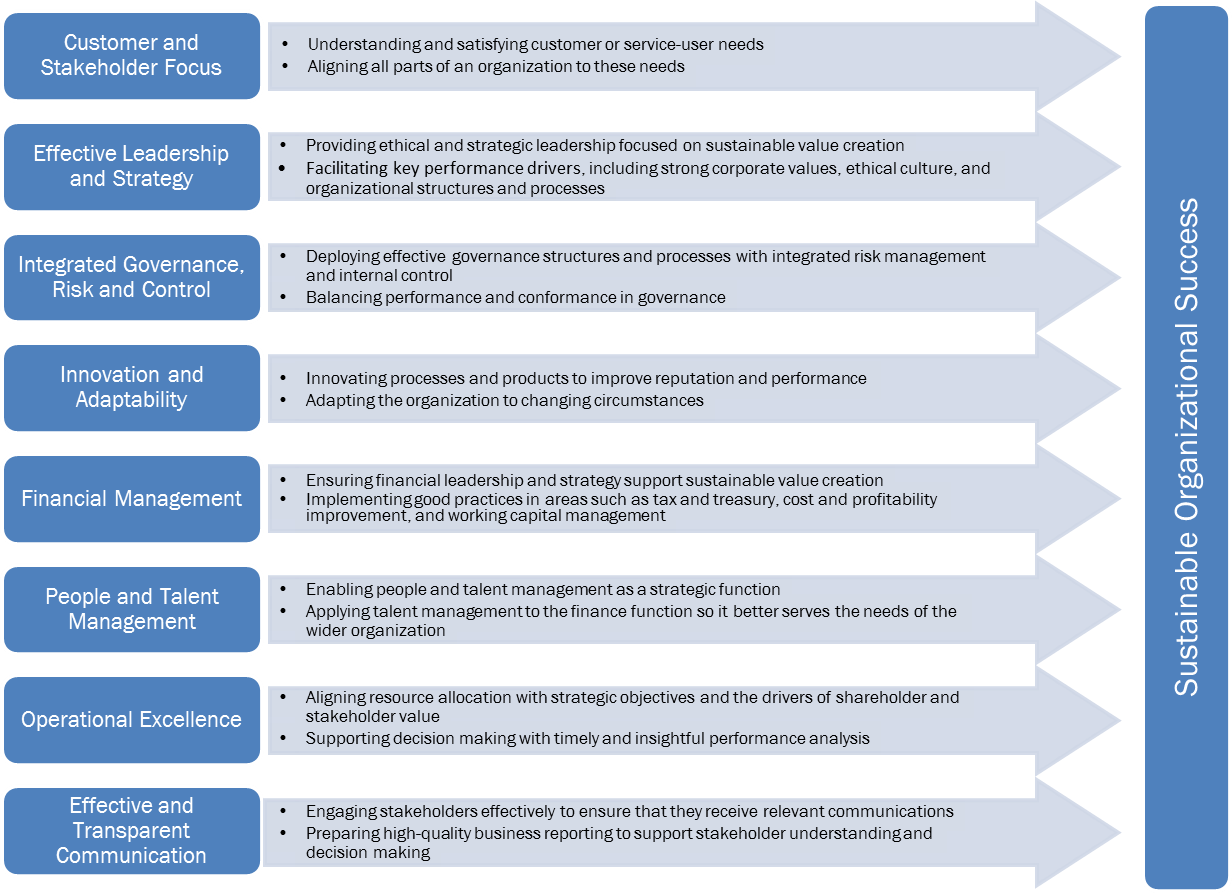Tomorrow’s Firm and the Role of Value Pricing
In a late-2012 poll conducted by IFAC, pressure to lower fees was identified by practitioners as one of the biggest challenges facing their small- and medium-sized accounting practices (SMPs). For some service offerings, like business advisory, the traditional hourly billing model may place a strain on the practice. Value pricing—which sets prices primarily, but not exclusively, on the value to the customer rather than on the cost of the service or historical prices—may be part of the solution to alleviating this pressure.
Ron Baker is known for his quest to “bury the billable hour and trash the timesheet.” Along with six best-selling books, he founded VeraSage Institute, dedicated to helping professional firms become “free and independent from the tyranny of time.” Andreas Noodt, member of the IFAC SMP Committee and practitioner at FIDES, a German Praxity member firm, recently caught up with Ron for an interview. This article introduces the concept of value pricing; future articles will look at the “how to” of value pricing.[1]
Andreas Noodt: Ron, you’ve been pursuing your worldwide quest to bury the billable hour and timesheets for the purpose of pricing for over 17 years now. What changes have you seen in that time?
Ron Baker: Overall, I’m encouraged by the progress we’ve been able to make. We are trying to diffuse a new theory into the accounting profession, which is measured in decades—sometimes centuries, as with germ theory in the medical profession— so I’m encouraged, while admitting we have a long way to go. At least the billable hour and timesheet are now on the defensive.
Andreas Noodt: In your latest book, Implementing Value Pricing: A Radical Business Model for Professional Firms, you propose a new business model. But first let us understand your definition of a business model, and your criticism of the traditional firm business model.
Ron Baker: A business model is how your firm creates value for clients and how you capture a portion of that value, so it’s inextricably linked to your pricing strategies. Throughout my accounting career, I was taught the following business model, which I think of as serving “The Firm of the Past”:
Revenue = People Power x Efficiency x Hourly Rate
There are several problems with this theory. First, once firms pass breakeven, it gives them a false sense that any revenue is good. Consequently, they accept low-value clients, taking up a firm’s precious capacity, and preventing it from reserving capacity for its most valuable clients.
Second, the way most firms were built in the last century was by leveraging people hours—the pyramid structure. As technology arrived––especially when the computer hit the desktop––the pyramids began to flatten. Most firms, however, still put revenue before capacity, always playing catch-up to the workflow and client demand. This inhibits innovation, client service, investments in CPE [continuing professional development] etc.
Third, most firms focus on efficiency by measuring utilization rates and billable hours. Yet, if you study statistics going back seventy years, you’d find utilization rates and billable hours are within a very tight range. So, whether firms are using a quill pen or a laptop computer, they can charge only so many hours in a year. The theory also compels leaders to believe efficiency is the talisman of running a profitable firm. This is demonstrably false. I’m sure the buggy-whip manufacturers were a model of efficiency before they were replaced by the automobile. What if you are efficient at doing the wrong things?
Last, the hourly rate. The profession has taught approximately three generations of accountants the only thing they sell is their time. This is nonsense, for a very fundamental reason––no client buys time. How can you sell something the client doesn’t buy?
Andreas Noodt: In what ways is your new business model different? Why is it better?
Ron Baker: The old model doesn’t explain why firms are successful, nor does it offer viable alternatives to leveraging the critical success factors in an intellectual capital economy––it is suboptimal. The new business model for “The Firm of the Future” is more optimal:
Profitability = Intellectual Capital x Effectiveness x Value Price
This theory has many advantages over the old one. First, rather than focusing on revenue, the firm is forced to think about the profitability of each client. Not all clients are created equal. Many firms could stand to lose up to 40-60% of their clients and they’d be more profitable.
Second, “Professional Knowledge Firms” (PKFs) don’t sell hours. They create and sell—and their clients buy—intellectual capital (IC). This is a far broader view than thinking about leveraging people and hours. Apple and Microsoft didn’t create the wealth they have by pricing by the hour, and I doubt Steve Jobs and Bill Gates kept a timesheet. Third, “The Firm of the Future” will focus on effectiveness, not efficiency. There’s not much the average firm can do to squeeze another 15-20% efficiency from its human capital, which is based on fallible human beings after all, not machines.
If you study surveys of how clients select—or fire—their accountants, efficiency and price is never mentioned. It is almost always because of outstanding service, or lack of service. You can’t provide outstanding service if you are focused on nothing but billable hour quotas and tedious efficiency metrics.
Last, PKFs need to recognize they are businesses, which have prices, not hourly rates. You’d never fly an airline that tried to charge you $4 per minute—and sent you the bill based on the flight time after the flight. PKFs need to start pricing upfront for everything they do, period. No more excuses. Fortunately, in thousands of PKFs around the world—in all sectors, from advertising agencies to law, accounting, and IT firms—this is beginning to happen.
Andreas Noodt: Would you elaborate on the concept of intellectual capital and discuss it in the context of accounting practices?
Ron Baker: A firm’s IC consists of three components: 1) human capital—its people, comprising 80% of developed countries wealth, according to the World Bank; 2) structural capital—its systems, proprietary software, checklists, resources, etc.; and 3) social capital—clients, vendors, suppliers, referral sources, alumni, alliances, etc. These components are the real levers of profitability in any PKF, not hours. Moreover, only the structural capital is owned by the firm—PKFs are the ultimate asset-less organizations.
IC is what economists call a non-rival asset—meaning you can transfer knowledge and it doesn’t diminish (you both now have it). In fact, it grows in usefulness as more people possess it and add to it. In contrast, a rival asset can only be used for one function at a time—if I give you the tie off my shirt, now you have it and I don’t. A billable hour is a rival asset—we can only do one thing at a time. This is a very limiting source of leverage around which to build a business model.
Andreas Noodt: How would you respond to those that claim that what you describe has limited global applicability, it being suited more to the likes of North America, the UK, and Australia?
Ron Baker: While I accept that the accountancy market and prevailing cultural, legal, and business norms vary from country to country, I am sure practitioners everywhere can relate to IC and recognize the increasing globalization of the market for accountancy services. When it comes to the finer points of implementing the new model, in particular value pricing, then we may find some differences.
At VeraSage, we believe this model is superior to, and will eventually supplant, the old model. Eliminating the billable hour and timesheets may not be within reach, but it is definitely within sight.
[1] The views expressed in this and future articles are not necessarily representative of IFAC, the SMP Committee, or its members.
References
Baker, Ronald J. Implementing Value Pricing: A Radical Business Model for Professional Firms. Hoboken, New Jersey: John Wiley & Sons, Inc., 2011. www.verasage.com.
IFAC. IFAC SMP Quick Poll: 2012 Round-up. New York: IFAC, 2013. www.ifac.org/news-events/2013-01/ifac-smp-poll-highlights-pervading-economic-uncertainty-cautious-optimism-and-ke.
The World Bank. The Changing Wealth of Nations. Washington D.C: The World Bank, 2010. http://data.worldbank.org/data-catalog/wealth-of-nations.


IFAC Interview with Ronald J. Baker

